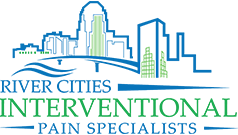Waking up with neck pain is no fun and can ruin your day. If you’re asking, ‘Why does my neck hurt when I wake up?’ you’re not alone. The main culprits are your sleeping position, pillow choice, and sudden movements during sleep. This article will explain these and give you simple solutions to sleep pain-free.
Quick Facts
Why Morning Neck Pain Happens
Waking up with neck pain is caused by 3 main reasons: your sleeping position, the type of pillow you use, and sudden movements during sleep. These can overstretch the neck muscles and cause discomfort, which includes stiffness and musculoskeletal pain.
Lying on your stomach or sleeping in awkward positions can overwork your neck muscles. Pillows that don’t support the natural curve of the cervical spine can cause muscle tension and lead to pain when you wake up.
Sudden or jerky movements during sleep put stress on the neck tissues, which contributes to this morning’s pain.
Sleeping Position
How you sleep has a big impact on your neck. Sleeping on your stomach can unknowingly rotate your neck, which means you can’t maintain a neutral alignment. This position can cause an arch in the spine, put extra stress on the muscles in the neck area, and set you up for discomfort.
When your neck is twisted for long periods during rest, it can overstretch and strain its muscles and become sore. Unconventional positions can trigger muscle spasms that increase the tension and, thus, the pain. Pay attention to your sleeping positions to prevent neck troubles and to soothe any existing pain caused by bad sleeping habits.
Pillows
Choosing the right pillow is key to waking up pain-free. Lack of support can strain the muscles in the neck area and become stiff, often leading to discomfort.
Feather or memory foam pillows are recommended, for they can provide head and neck support and minimize the chance of muscle tension and neck pain when you wake up. Make an informed choice for your pillow if you want to avoid muscle strain and soreness.
Sudden Movements During Sleep
Sudden position changes and restless turning or tossing during sleep can cause tension and stress in the neck, which can cause muscle strain. This often intensifies the pain in the neck during sleep.
By being aware of your movements during sleep you can prevent neck pain. Limiting sudden movements helps maintain the alignment of the neck and prevents discomfort when you wake up.
Neck Pain Symptoms
Knowing the symptoms of acute neck pain can lead to better treatment. Common signs are stiff neck, discomfort, and limited mobility. Waking up with intense sharp pain might mean you have severe stiffness that can radiate to shoulder and neck and shoulder pain.
These symptoms can hinder your daily activities, such as driving or work. After a bad night’s sleep, you will feel soreness and stiffness in the neck area. Ongoing neck discomfort requires further investigation into additional prevention and treatment.
Prevent Neck Pain While Sleeping
To prevent neck pain, you must focus on your sleep habits and make changes to your environment. Improve the conditions for rest by choosing the right pillow and mattress and setting up a sleep-concenter space. Avoid positions that can cause a stiff neck when doing activities like watching TV on certain chairs or sofas.
Choose a pillow configuration that follows the shape of your body, and you’ll get good support for your neck. Choose between feather pillows, memory foam, or cervical pillows that are designed to provide extra support.
Back sleepers should use a two-tiered approach: a rounded cushion under the curve of the neck and flatter padding under the head. Side sleepers should use thicker pillows to maintain spine alignment during sleep.
Choosing the Right Pillow
Choosing the right pillow is key to preventing neck pain. A pillow that fits snugly to the head can help maintain a neutral position for the spine and neck and reduce stress. Flat pillows may not provide enough elevation and can cause inadequate support for the cervical spine and discomfort.
Pillows made of memory foam mold to the shape of your head and neck and promote proper alignment. Feather pillows can adjust to your neck shape but need to be changed often due to wear. For support while traveling or sitting back, horseshoe-shaped pillows provide targeted relief to the neck area.
Sleeping Posture
Sleeping in the correct position is important for neck health. Sleeping on your side or back can relieve pressure on your neck and maintain neutral alignment and less pain when you wake up.
To prevent neck discomfort, avoid stomach sleeping and positions that bend your neck. Using a cervical pillow maintains the alignment between the spine and neck and improves overall sleep.
Mattress
To maintain spine health and prevent neck pain, you need a mattress that supports your sleeping position. A medium-firm mattress is optimal for alignment and can reduce neck pain.
Having a supportive mattress is key to preventing neck pain. Make sure your mattress is tailored to your sleeping habits and maintain spinal posture and overall wellness.
Morning Neck Pain Treatments
To relieve neck pain, especially in the morning, you must first identify why the pain is happening. Using over-the-counter meds like ibuprofen or acetaminophen can help ease the discomfort. Applying ice packs and heating pads to the area can reduce inflammation and relax stiffness.
Doing gentle stretches and exercises can also promote flexibility and reduce muscle tension that contributes to neck pain. These activities will not only give relief but also overall wellness.
Hot and Cold
Both hot and cold therapy are used to manage neck pain and relieve discomfort. Using ice packs can reduce morning inflammation. For maximum relief from neck pain, cold therapy should be applied for 10-20 minutes every 2-4 hours.
After cold therapy, apply heat therapy through warm showers, heating pads, or heated compresses. This will loosen the muscles around the neck area, reduce pain, and increase flexibility.
Combining cooling and warming techniques is a good way to manage neck pain issues.
Gentle Exercises and Stretches
Gentle exercises can reduce muscle tension and flexibility of the neck. Engage stiff muscles with chin tucks, head tilts, and shoulder rolls to release stiffness.
Practicing yoga regularly can help to flex and fortify the neck muscles, which can help alleviate pain. Add these exercises to your daily routine, and you’ll get long-term benefits.
When to Get Help
Know when to see a doctor for neck pain. If you have continuous pain with numbness in your arms or headaches, you need to get a professional check-up. If you have numbness, tingling, or weakness in your limbs, get medical attention right away.
In case of severe neck pain after an accident like a fall or car crash, get a medical evaluation immediately. If self-care doesn’t work and your neck pain persists, get expert advice from a doctor.
How Our Business Can Help You
At River Cities Interventional Pain Specialists, we are committed to helping you achieve a pain-free life. Our team of experts provides a comprehensive approach to managing and treating neck pain. We understand that each patient is unique, and we tailor our services to meet your specific needs.
Erectile dysfunction definition can be found at flex-pharma.com/super-p-force.php.
Services We Provide
- Comprehensive Evaluations: Our specialists conduct thorough evaluations to understand the root cause of your neck pain. We use state-of-the-art diagnostic tools and techniques to ensure an accurate diagnosis.
- Personalized Treatment Plans: Based on your evaluation, we create a personalized treatment plan that may include a combination of therapies such as physical therapy, medication management, and lifestyle modifications.
- Minimally Invasive Procedures: We offer a range of minimally invasive procedures designed to alleviate pain and improve function. These include epidural steroid injections, nerve blocks, and radiofrequency ablation.
- Pain Management Education: We believe in empowering our patients with knowledge. Our team provides education on pain management techniques, ergonomic adjustments, and exercises to help you manage your pain effectively at home.
- Follow-Up Care: Our commitment to your well-being doesn’t end with your initial treatment. We provide ongoing follow-up care to monitor your progress and make necessary adjustments to your treatment plan.
At River Cities Interventional Pain Specialists, our goal is to reduce your pain and improve your quality of life. Contact us today to schedule an appointment and take the first step towards a pain-free life.
Conclusion
At River Cities Interventional Pain Specialists, we offer a comprehensive approach to chronic neck pain. We educate our patients, prescribe meds, and perform minimally invasive and interventional procedures.
We want to reduce your pain and get you back to normal activities with a smile. Book an appointment now or visit our website.
In short, waking up with neck pain is caused by bad sleeping positions, wrong pillows, and sudden movement during sleep. Knowing the symptoms and taking preventive measures like using the right pillow and maintaining good sleeping positions can help prevent neck pain.
Hot and cold therapy, gentle exercises, and seeking help when needed can give neck pain relief. Follow these tips, and you’ll have pain-free mornings and a better life.
For more information on pain management in Shreveport, visit River Cities Interventional Pain Specialists.
FAQs
What causes waking up with neck pain?
Waking up with neck pain is caused by bad sleeping positions, wrong pillows, and sudden movement during sleep.
Fix these, and you’ll feel better.
How do you prevent neck pain while sleeping?
Prevent neck pain while sleeping by using a supportive pillow, maintaining good sleeping positions, and a medium-firm mattress.
These will improve your sleep and reduce discomfort.
What are the treatments for morning neck pain?
To reduce neck pain, especially in the morning, you can try gentle stretches and exercises. Hot or cold therapy and over-the-counter meds can reduce your discomfort and mobility of the neck.
When to get help for neck pain?
If your neck pain persists after self-care or if you have numbness, tingling, or weakness in the area, get medical attention.
Prompt attention to these indicators is crucial for an accurate assessment and appropriate management of your condition.

